Cianide are massive stalwarts of American death metal for whom little has changed in twenty years. Their impact is a bludgeoning and brute force one derived almost wholly from the genre’s progenitors; Slaughter (Canada), Hellhammer/Celtic Frost, Slayer are touched with the plodding heavy metal of the previous generation to shore up their unwavering sound.
Interview originally from Heidenlarm e-zine #5.
When you formed Cianide, how did you describe the music you wanted to create?
Always was, is and will be: DEATH METAL. Granted we’re probably not the exact textbook definition of the genre, but that is what we’ve always set out to be. Could explain why we’ve managed to outlast a lot of more “popular” or “successful” of the bands that started around the same time we did. Our vision has always stayed the course and to play any other kind of music would just be stupid.
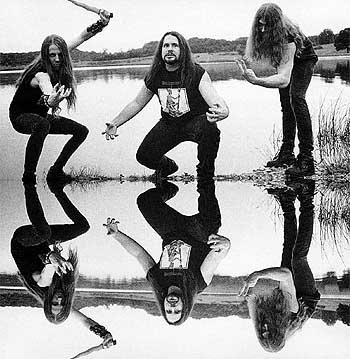
Of the artists who influenced you, which most directly affected your conception of the style of music you create with Cianide?
Of all of our influences the bands that immediately come to mind are FROST/HELLHAMMER (of course!), SLAUGHTER and MASTER/DEATHSTRIKE. Bands that incorporated various speeds/tempos as opposed to just speed for speed’s sake 100% of the time. Another band is POST MORTEM. “Coroner’s Office” is a fuckin’ classic!
The first Cianide album seemed to me to be more grinding than death metal, straying into the ambiguous and underexplored territory where Bolt Thrower, Blood and later Napalm Death wander. a) Do you think this perception is (semi-)accurate and b) what do you see as the differences emerging on later albums?
a. I guess you could say it’s accurate, though at the time we were just doing what we were able to do and not giving a fuck. Looking at the big picture, not a lot of bands call themselves Death Metal and play the sick, slow, dirgy stuff. I guess they call it gay “stoner” now. Remember when it used to be called DOOM METAL??
b. Well obviously we’ve picked up the pace a bit!! Theres only so many times you can hit an open E chord over a slow drum beat. Now were doing open E over faster beats!! Har Har! Seriously, slow heavy shit was just the order for that time for us. Mainly we got Andy on drums and he was more capable to handle faster stuff after Jeff left, so things just got faster from there. We haven’t completely abandoned our death-dirge roots though.
Over the course of development, Cianide has landed – for lack of a better phrase – into the category of “old school death metal,” joining luminaries such as Asphyx and Morpheus Descends. How do you think this music is different in its aim from other forms of death metal?
For us, we’re just playing the music that WE want to hear. If people call it “old school” well fuck, we are old school! I can’t speak for any other bands, but for us, this is the only way we know how to do it. It’s hard to pin down because nowadays bands like Cannibal and Morbid Angel are labeled “old school” but I think you must be referring to an actual “old school” sound. If that’s what you mean, you could say a band like CIANIDE is sort of a preservation of very early death metal. We’re not looking to break any new ground with this, nor do we have any aspirations for commercial success (though that would be nice if it came along!!), just trying to emulate the sound and style of the ancient GODS OF DEATH.
Someone once drew the distinction between hum-along metal like Motörhead or Venom, and “subversive metal,” meaning stuff that tries to be avantgarde, progressive or regressive. It seems to me that no band since Venom has captured the sense of popular and hum-along (really, is there a better term for this? songs that stay in your head and are relevant to aspects of everyday normal life) metal in the same way Cianide has, with bouncy, heavy, catchy songs hammering home simple ideas in smoothly integrated structures. How did you achieve this, and what are your thoughts on the accuracy of these statements? (I am no big fan of the hacked together terms like hum-along and subversive, but for now am not sure what I’d use in their place except extensive tedious descriptions)
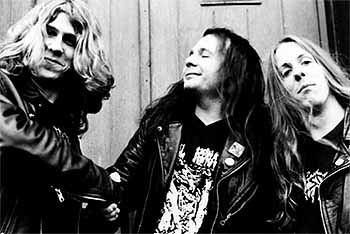 I agree with the statement and take it as a compliment! Again we just write what we like and want to hear. Every riff we write has to fucking kill, no filler songs or parts with CIANIDE as far as I’m concerned. Bands with catchy choruses is the style of metal that we grew up with so it only makes sense that we would emulate that. Even stuff like early Death, Terrorizer, Repulsion, Massacre and even Morbid Angel had choruses that you could consider “catchy”. I can appreciate bands that play overly technical, but most of the time I prefer something that sticks in my head and kicks my ass.
I agree with the statement and take it as a compliment! Again we just write what we like and want to hear. Every riff we write has to fucking kill, no filler songs or parts with CIANIDE as far as I’m concerned. Bands with catchy choruses is the style of metal that we grew up with so it only makes sense that we would emulate that. Even stuff like early Death, Terrorizer, Repulsion, Massacre and even Morbid Angel had choruses that you could consider “catchy”. I can appreciate bands that play overly technical, but most of the time I prefer something that sticks in my head and kicks my ass.
Cianide seems to have stayed with no single label for more than an album. Is this true? Are there reasons the band had for doing this, or was this a product of what I call the “usual label chaos,” e.g. labels falling apart, dropping bands at random and going bankrupt?
Our first label, Grindcore merely changed their name to Red Light so our first two releases were basically on the same label. They went chapter 13, so we did DDD with Lost Horizon. That label was basically two friends of ours wanting to do a label. They were flipping the bill and nobody was asking us to dance at the time so we said, “what the fuck”. They went belly up also. Merciless re- released DDD on vinyl and did our latest, Divide and Conquer and are all set to our our forthcoming “The Age of Hell’s Rebirth”. So far so good.
Someone once told me I was not “open-minded” for automatically hating some band that attempted to merge alternative rock and metal; what do you think?
Liking different styles of music is actually just a matter of taste and really has nothing to do with having a so-called “open mind”, which has been such an over-used term ever since the 80’s that it is now pointless and irrelevant to label anybody as such (closed minded). What this egotistical person actually means is, ‘my opinion in music is much better than yours because I have no real convictions and simply like what is deemed “cool” by the mainstream, even though I think I’m hip and into new and crazy things just to impress ditzy college girls’.
Tell that person to stick his alternative/metal/rock/bastard hybrid up his open-minded ass.
Metal has changed in demographic since the so-called “glory (hole) days” of 1988-1994, with a broader and bigger audience now tuning in to even the most antisocial black metal. What changes do you think this demographic has caused to occur in the music itself?
From what I can see, when a band achieves some sort of success be it either underground or commercial, the band will try to write what it thinks is popular in an attempt to “keep up with the times” (ie. Entombed, Morgoth, Mayhem). On the other side of the coin, if a band is successful and stays true to their original ideals, they still will get dismissed by all the death-metal weenies and black metal trendies who are only into listening to shitty bands that YOU never heard of. So in essence, nothing has really changed.
Will you ever work to re-release the old Cianide albums?
There has been talk about re-releasing the first two on vinyl but nothing serious as of yet. We are planning on putting all our demos out on a double cd, with all kinds of extras and shit. Should rule.
A Descent Into Hell seems to me, sonically, to be one of the “heaviest” albums ever created, and not just through production – how did you achieve this, and what was your aim in creating that album? (see disclaimer above about hacked together terms again)
Again, we just do what we do. I think at that time we were tuned to like Z or something. We did all of those songs live, most only in one or two takes. The kicks and snare were sampled though. I remember after we got done doing the first song, the engineers came in and they were like, “everything sounds good guys but we do need more bass” we thought they were serious. Then they started laughing at us and they were like, “jeezzzzus, you guys are FUCKING HEAVY!!” “Decent…” is also a personal favorite of mine. I think it’s impossible to get that sound back again but who knows…………..
Has Cianide toured, or is it more of a band that you do when not leading a normal life?
Tour?? Shit, we’re lucky we play out once a year!! The time for touring is past. We’re smart enough to realize early on that playing underground metal, be it Black, Death or otherwise, wasn’t going to be a very lucrative career choice. Insecure “we’re truer than thou” hard-on’s would probably classify us as hobbyists, and they may be right. A hobby is defined as any activity that one enjoys in their spare time. Though I guarantee you this, we’ll still be doing what we do long after today’s hip-name-to-drops have changed their style/names/haircuts and end up in the washed up file cut-out bins.
To put it bluntly, what are you guys like in real life? Are you closer to maniacs who live out the lyrics to cianide songs, or artists who metaphorically describe what they perceive?
We’re just your above average beer swilling metalheads. What you see is what you get. No tattoos, no gay piercings. Dirty, Ugly, loud and proud!
One other thing about Cianide that is gratifying: a sense of humor. What do you see as the role of humor in “serious” metal? Do you consider Cianide a serious band? If not, what motivates you to have the standards you do in the creation of the music?
I’m not really into “joke” or “message” bands. Injecting humor into Metal can be tricky. It’s hard to do it correct without sounding lame. Obviously we’re not a joke band, but we like to inject some humor, like our thank you lists are always filled with jags. POST MORTEM were the originators of that. At least that’s who we stole it from!! I love who I am and love being a Metalhead. But there are some people out there who take this music and themselves way too seriously who are just rubbers. It’s just music after all. Who know’s though, I’m sure to some people it looks like I take it too seriously. The grass is always greener……………
If you could tour with any two death metal bands in history, which would they be?
Slaughter – original line-up
Master – original line-up
What do you think of the following:
1. Asphyx – I have “The Rack” on cassette…..good heavy death metal
2. Master – The early stuff is immortal…the new stuff ain’t so bad
either
3. Suffer (SWE) – never heard them
4. Kittie – never heard them
5. Carnage (SWE) – Entombed clones
Do you have any views on religion? How religion effects politics? How this affects us now?
Religion and politics are needed to keep the general population in line. I think they’re both brilliant. You can’t have people just running wild, doing what they want. It sounds good on paper and makes for a lot of cool lyrical ideas, be it Metal, Punk or otherwise, but when you return back to the real world the majority of people out there simply cannot handle the responsibility of being an individual, and I don’t want to deal with them. It’s not my job.
Religion, of course, does make some men better, and perhaps even many men. There can be no doubt of it. But making them better by filling their poor heads with grotesque nonsense is an irrational and wasteful process, and the harm it does greatly outweighs the good. If men could be made better — or even only happier — by teaching them that two and two make five there would be plenty of fools to advocate that method, but it would remain anti-social none the less. If the theologians could only agree on their doctrines their unanimity might have some evidential value, just as the agreement of all politicians that the first duty of the citizen is to obey them and admire them has some evidential value. It may not be true, but it is at least undisputed by all save a small fraction of heretics, which is certainly something. Fortunately for common sense, the theologians are never able to agree. Even within the sects, and under the more rigid discipline, there is constant wrangling, as, for example, between the Jesuits and the Dominicans. Thus the cocksureness of one outfit is cancelled out by the ribald denial of all the rest, and rational men are able to consign the whole gang to statistics and the Devil.
– Henry Louis Mencken
What are your views on wealth, and its ideal relationship to individual humans?
People who go around saying, “money isn’t everything” are usually already rich and never had to work hard to achieve their wealth/success. Give me enough money so I don’t ever have to work again in my life and I’ll show you one happy, fat little man!!!
 Do you support or reject anti-bestiality laws?
Do you support or reject anti-bestiality laws?
Hey, whatever blows yer skirt up!
What in your view are the a) strengths and b) weaknesses that metal took on by going “underground” instead of attempting to be a mainstream genre?
For one thing, since all true metal is underground it is not scrutinized and kept in check by the politically correct mainstream. Bands can say and write whatever they feel without any pressure of pissing this one off or offending others. Imagine how lame your favorite metal bands would become if they had to kow-tow to the whole music industry just to create music. I have one word for people who may disagree with this: METALLICA!! I love the fact that metal is underground. The people who want it know where to get it. It sucks for the bands who I’m sure need to play to eat, but that’s not my problem.
What do you think of nu-metal? Can metal ever be in the mainstream, like it was with Black Sabbath?
Any band can get big if marketed properly and shoved down the masses throats. For instance, if MTV tells their audience that Christraping Black Metal is “cool” and says that the bandmembers are “cute”, all Black Metal bands would get huge and you would not like them anymore. Sabbath were/are huge, but in their day, they never got any radio airplay (except for “Paranoid” late at night), let alone videos. They just did it through word of mouth and constant touring. As for nu-metal, it’s just like the 80’s. Instead of big- hair you have buzz-cuts. Instead of eyeliner you have piercings. Instead of glamed out clothes you have tribal tattoos. The music is just a watered down, bastardized, marketed and hyped version of the real deal.
Does metal keep evolving, or is it cyclic?
Everything is the same, just different haircuts!!
What’s the next Cianide album going to be like?
Just like the last one, except HEAVIER!!
Will you ever do a live album?
Hopefully someday. Guess you need to play live to do that!!!
What is your stance on mp3 trading of rare materials?
It doesn’t affect me either way, if I hear something I’ll just go out and buy it.
I’m the same way, if I like something, I’ll go and buy it. I have other things to do on my computer than sitting there waiting for a song to download, like looking for porn!! I do think it’s good for people to hear what a band sounds like from their website etc before they go out and buy it. It’s just another medium.
Did Cianide have any demos? If so, what were they?
We did three official demo’s: “Funeral” in 1990, “Second Life” in 91′ and “Cianide Kills” in I think 1993. We also had 2 different three-song promos for DDD and Divide……, but those weren’t really for sale. Everything will probably be on a single release for CURSED PRODUCTIONS if we can get off our lazy asses and get started on it.
 Are reactions to Cianide different in Europe and Asia versus the USA?
Are reactions to Cianide different in Europe and Asia versus the USA?
Reactions seem to be pretty much the same everywhere. We’re regarded as throwbacks from all over!!
Are there any metal zines or websites you read, and, if so, what makes them useful to you?
The only zines I’ll plug that come to mind are Metal Curse and Midwest Metal cuz they are cool!
Will metal survive the wave of hip-hop music in America?
It already is as far as I can tell. Rap is already regarded as a joke whose core audience is rich, white, suburban kids. Hip-hop and rap do provide a very important service to us Metal fans however for which I’m truly thankful: BY KEEPING A GREAT MAJORITY OF ALL MORONS, MEATHEADS AND FUCKUP’S OUT OF OUR SCENE!!!! Every time I happen to turn on some MTV special or video, I get a big smile and feel great inside. That’s right dummies, keep being spoon-fed your entertainment you mindless fools! Yo Dawg!!! Bling Bling!! Comedy!!
Does metal’s being different from jazz, blues, hip-hop make it a cultural or political statement?
The fact that underground metal is the only form of rock and roll that has yet to be turned into a marketable mainstream commodity surely says something. It almost happened to death metal in the early 90’s. Then Nirvana killed that, thankfully!! STAY UNDERGROUND!!!
Anything I forgot you’d care to add?
I think you covered it all my man!!
Thanks for the interview. Visit the official CIANIDE WEBSITE at www.cianide-metal.com
No CommentsTags: cianide, interview




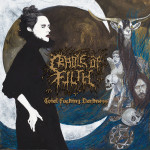
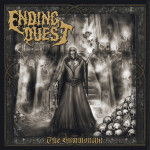
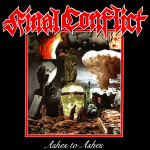


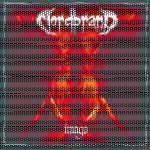


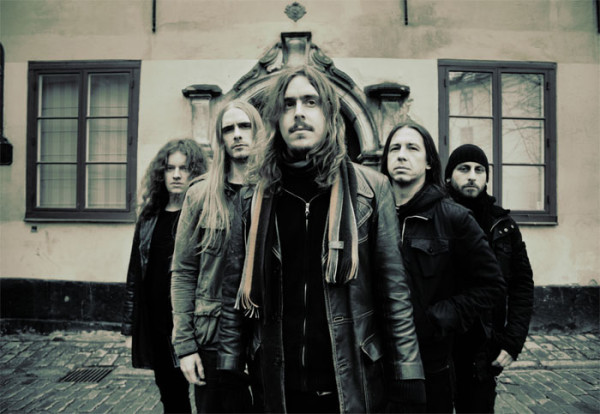


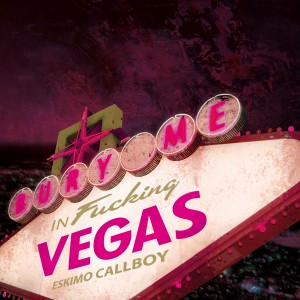

 I agree with the statement and take it as a compliment! Again we just write what we like and want to hear. Every riff we write has to fucking kill, no filler songs or parts with CIANIDE as far as I’m concerned. Bands with catchy choruses is the style of metal that we grew up with so it only makes sense that we would emulate that. Even stuff like early Death, Terrorizer, Repulsion, Massacre and even Morbid Angel had choruses that you could consider “catchy”. I can appreciate bands that play overly technical, but most of the time I prefer something that sticks in my head and kicks my ass.
I agree with the statement and take it as a compliment! Again we just write what we like and want to hear. Every riff we write has to fucking kill, no filler songs or parts with CIANIDE as far as I’m concerned. Bands with catchy choruses is the style of metal that we grew up with so it only makes sense that we would emulate that. Even stuff like early Death, Terrorizer, Repulsion, Massacre and even Morbid Angel had choruses that you could consider “catchy”. I can appreciate bands that play overly technical, but most of the time I prefer something that sticks in my head and kicks my ass. Do you support or reject anti-bestiality laws?
Do you support or reject anti-bestiality laws? Are reactions to Cianide different in Europe and Asia versus the USA?
Are reactions to Cianide different in Europe and Asia versus the USA? For kicks I decided to listen to nothing but classical music for a month. Having bounced around looking for the next genre to capture the power of old school metal, I realized that none were coming close, so skipped the drama and went right for the heavyweight — classical. In specific, I’d found the following frustrations:
For kicks I decided to listen to nothing but classical music for a month. Having bounced around looking for the next genre to capture the power of old school metal, I realized that none were coming close, so skipped the drama and went right for the heavyweight — classical. In specific, I’d found the following frustrations: Because of this, I chucked aside the notion of listening to popular music — at all. Even if it’s underground or indie, if it’s in the popular music format, that’s how it will be perceived and treated, which in turn affects how I’ll have to interact with it and get ahold of it. Specifically, I noted how the greatest artists were straining to escape the kiddie music ghetto, like Tangerine Dream, Kraftwerk, Fripp and Eno. Why keep pushing the dead agenda?
Because of this, I chucked aside the notion of listening to popular music — at all. Even if it’s underground or indie, if it’s in the popular music format, that’s how it will be perceived and treated, which in turn affects how I’ll have to interact with it and get ahold of it. Specifically, I noted how the greatest artists were straining to escape the kiddie music ghetto, like Tangerine Dream, Kraftwerk, Fripp and Eno. Why keep pushing the dead agenda? Finally, there’s a time difference. Rock music is three-minute songs, with a few exceptions. Classical music has some three-minute songs, but more commonly, longer pieces are composed of several movements. Themes are shared across these movements, like a conversation with question, answer, debate, modification and restatement. You can’t hum a melody knowing that in thirty seconds, after the chorus, it’ll be back.
Finally, there’s a time difference. Rock music is three-minute songs, with a few exceptions. Classical music has some three-minute songs, but more commonly, longer pieces are composed of several movements. Themes are shared across these movements, like a conversation with question, answer, debate, modification and restatement. You can’t hum a melody knowing that in thirty seconds, after the chorus, it’ll be back.
